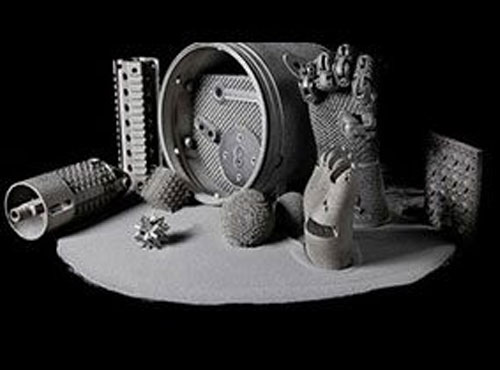
Additive Manufacturing
VARCHU MARC LLP Additive Manufacturing testing lab has expanded capabilities in testing powdered metal characterization and laser-sintered metal testing & analysis to help manufacturers quickly and accurately evaluate their product throughout the design, development, and production phases.
For example, VARCHU MARC LLP provides comprehensive powder analysis to characterize the starting powder via the following test methods fully:
- Chemical Analysis (ICP-AES, ICP-MS)
- Percent Crystallinity Testing
- Particle Size Testing (Microtrac)
- Morphology Analysis of Density and Flow (XRD, SEM and optical)
ADDITIVE MATERIALS TESTING - POWDERS, RAW MATERIAL
Many additive manufacturing (AM) challenges are being overcome through the use of materials testing and analysis. This starts with the need for well-characterized raw materials:
- Powders
- Pastes
- Wires
SLS powders especially need ongoing testing due to the need to reuse unsintered powder without affecting the end product.
ADDITIVE MATERIALS TESTING- COMPONENTS TESTING
Additive manufactured components testing requires the analysis of a wide array of properties, based not only on the end-use of the part but also the AM process being used to produce them. With the push towards lighter, more durable products created with AM technology, supply chains must ensure that their products meet or exceed physical characteristic specifications of quality.
ADDITIVE MATERIALS TESTING- TAP DENSITY
The testing of density of powders for additive materials manufacturing is done with the tap density test, which is performed by mechanically tapping the powder sample a set number of times. The resulting data measures the tapped density of the powder. Tapped density is measured as a ratio: the mass of the powder in relation to the volume of the powder after it has been tapped. The tapped density ratio measurement is useful in additive materials manufacturing because it ensures that the powders selected for a given application are suitable.
ADDITIVE MATERIALS TESTING- GAS PYCNOMETER
A gas pycnometer is used to measure absolute density or skeletal density of a solid. The test is non-destructive and is used on materials that are granular, porous, or irregularly shaped. The testing offers insight into material stability, quality, and purity and is done so quickly and with highly accurate results. The analysis received from a gas pycnometer test is applicable in additive materials manufacturing as an overview of material properties in relation to the applications they may be used for.
